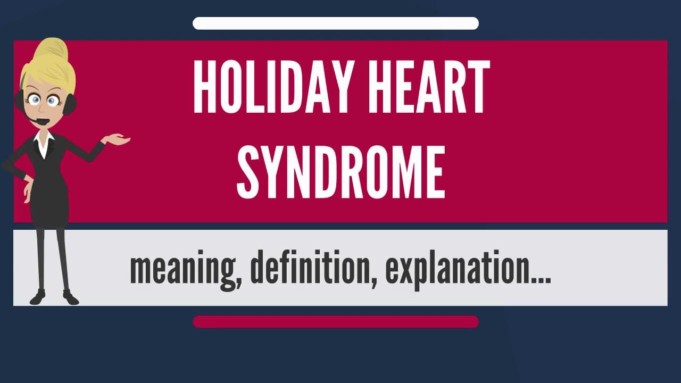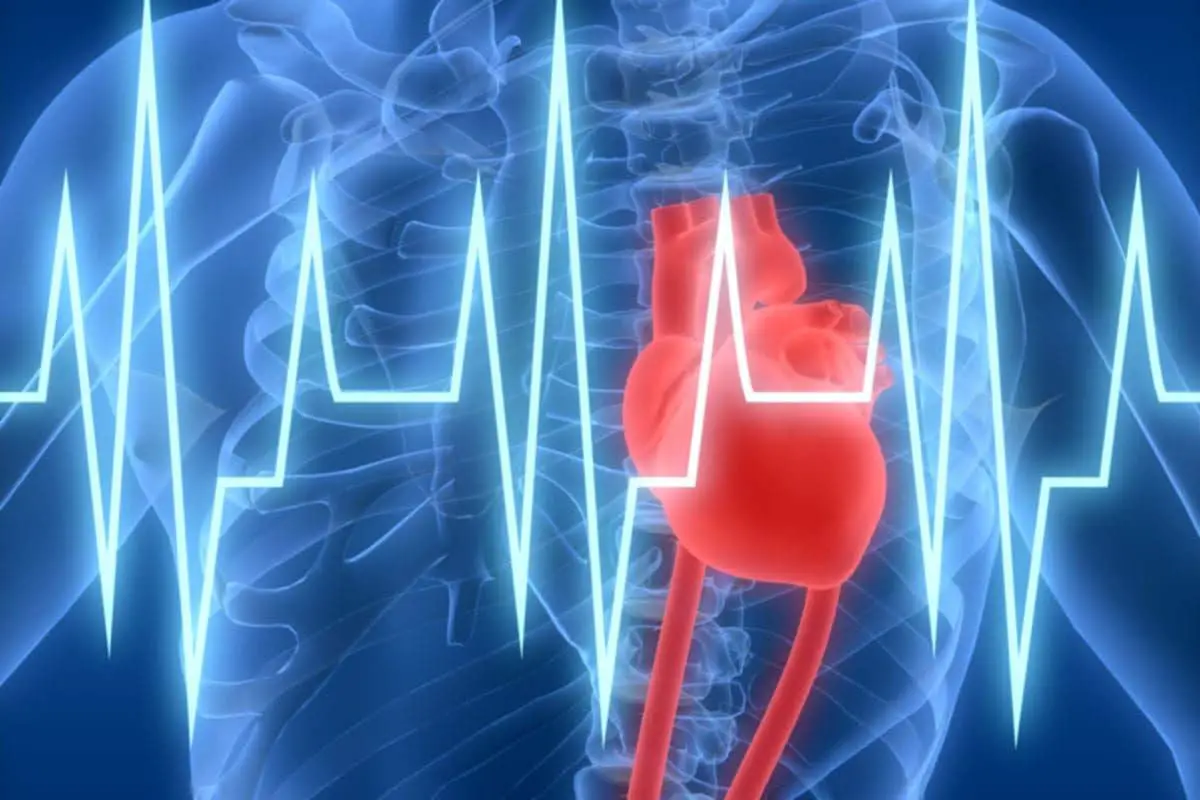The only time you get to eat and drink in excess without feeling guilty is during the holidays. You realise you don’t have to go to work or take the kids to school and no body is going judge you for having all the food and drinks you’ve missed during the period you had to work. The question, however, is how this eating and drinking in excess affects your health.
Whether it’s at a holiday party or you just have family and free friends over, the temptation to test your resolve around drinks and food is always in abundance. It is very OK to indulge a little, but when you indulge in excessive holiday drinking, you just may be causing harm to yourself.
Even in very healthy people, the occurrence of heart arrhythmia, holiday heart syndrome, is not uncommon after bouts of binge drinking.
All you should know about the holiday heart syndrome
The holiday heart syndrome made its debut appearance in the medical literature back in 1978. In the study, doctors talked about the prevalent problem of cardiac rhythm disorders that is related to binge drinking that frequently occurs during the holidays.
The author of the study wrote that “Episodes usually followed heavy weekend or holiday sprees, resulting in hospitalization between Sunday and Tuesday or in proximity to the year-end holidays, a relationship not observed in other alcohol-associated illnesses.”
Another study recently discovered that the risks of heart attacks spiked by 15% during the Christmas aim new year holidays. It was also discovered that the risk increased after the new year’s Eve and also on other mid summer holidays.
It is however fortunate that the holiday heart syndrome only tends to become acute after bouts of drinking and it also resolves itself without you spending anything on treatment. All you are required to do is stop drinking.
So while you are drinking you may want to pay attention to your heart rate if you noticed your heart rate is fluttering or becomes faster than normal you just may have to chill on the bottles for some time.
The effects of excessive intake of alcohol is just an example of how things must be done in moderation. From eating, to engaging in exercises to drinking, taking vitamins, supplements, and even caffeine, moderation is important.
These things may not be bad on their own, but when consumed in excess they may cause some Heath damages. The holiday heart syndrome is common because moderation is one of the rules that are easily broken during holidays.
Your heart health and alcohol
Even though the holiday heart syndrome has been discovered and talked about for over four decades, the reason why consuming such quantity of alcohol affects the heart in this manner is yet to be properly understood.
It is known that alcohol tends to affect both the parasympathetic and sympathetic nervous system, as well as many other functions of the Human body which can potentially lead to cardiac arrhythmia.
The hearts electrical system is built into the muscles cells of the heart so wherever the muscle get affected, so does the electrical system.
While alcohol consumption is a culprit, there are several other factors that affect the heart during the holiday season. A person may undergo high levels of stress from buying gifts, calculating your expenses, having lots of people over at your place, putting holiday parties together, and every other thing that comes with the season.
Your diet can also play a role is messing up your heart as there is sure to be sweets, plenty of rich foods, junks, and other leftovers that might have you eating unhealthy.
Visiting people or putting together a holiday party can make it hard for you to get enough exercise or sleep the way you want to. For this reason, it is no surprise that has to deal with more cases of heart attacks during the yuletide sessions.
With all of that said, it is vital to point out that the holiday heart syndrome isn’t much of a dangerous thing. While you may have reasons to bother about a rapid heart rate or get scared when you discover your heart skipped a few beats without the presence of any symptoms of heart disease, the truth remains that the problem will fix itself before you know it.
When you develop a few extra heartbeats or notice some small palpitations, but you feel OK, then in less than 24 hours, everything should be back to normal.
However, the rule remains that if you are beginning to notice that your activity is affecting anything in your body negatively, it is in your best interest that you stop and get some rest.
When to take it seriously
I have earlier said the holiday heart syndrome is nothing to worry about but there are cases when though must get help immediately. If alcohol-related heart arrhythmias is accompanied by chest pains, loss of consciousness, dizziness, and difficulty breathing then you must get the patient to see a doctor without hesitation.
Some very serious complications like stroke and heart failure have been connected to heart arrhythmias and they can result in death if not treated immediately and properly.
Heart arrhythmias as well as heart failure can be part of holiday heart syndrome, which means that the holiday heart syndrome can be associated with poor pumping of blood. When a person’s heart begins to fail and the pumping if blood becomes disturbed, the result will be a shortage of breath and sometimes death.
These are the worse case scenario of holiday heart syndrome as other cases will solve themselves. Nevertheless, it is vital that you keep your medical condition and history in mind as that will guide you to do things moderately especially when it comes to alcohol consumption during the holiday season.
If you begin to feel any changes that bother you or you just want to be sure that your heart is in good condition after binge drinking alcohol, please do not hesitate to see a doctor and lay your complains.
Stay away from drinking competitions and dares that require you to consume more alcohol even when you have reached your limit or you ate beginning to feel like something is wrong. Also, avoid mixing your alcohol with drugs as you may be boarding the next bus to the emergency room.













